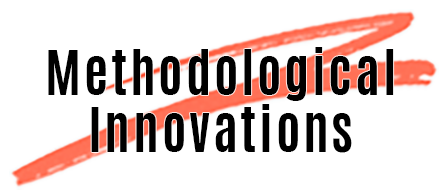Below is a contribution written by Lisa Moran, a speaker from the conference, about tacit knowledge in her research.
‘Troubling the Untold and the Untellable’: Reflections on Tacit Knowledge, Researcher Positionalities and Childhood Memories during Lockdown
By Lisa Moran
Senior Lecturer and CLT Learning and Teaching Fellow, Edge Hill University, Lancashire, UK; SFHEA, Vice President of the Sociological Association of Ireland (SAI)
Tacit Knowledge
Since I first became acquainted with ‘tacit knowledge’ as an undergraduate student in 2003, I have been fascinated with the things we know but cannot tell. I remember very well when I first heard the term. I was in a Contemporary Social Thought class in NUI Galway when studying for a degree in Politics, Sociology and English Literature. I had no idea then that tacit knowledge would have such a profound influence on my research or my future career choices. A year and a half later at age 22, after successfully completing an MA in European Integration at the University of Limerick, I returned to NUIG to begin my PhD analysing how ‘knowledge cultures’ (Tsouvalis et al, 2001) that are classified simultaneously as tacit, lay, local and folk affect environmental policy implementation in Connemara, a predominantly rural region in the west of Ireland.
Although I have since diversified into other research topics; the lives of children in care, youth spaces and places, and biographic, narrative research methodologies, I identify strongly with my intellectual roots in the Sociology of Scientific Knowledge (SSK) and Environmental Sociology. Furthermore, this early work I completed on tacit knowledge subsequently inspired how I did biographic interviews in successive research teams; for example, in a BNIM study of farmer’s knowledge of control measures for Johne’s disease in Irish dairy and dry-stock herds with Teagasc Ireland and University College Dublin (McAloon et al 2017) and phase one of an autobiographical study of veterinarian-client relationships in the UK and Ireland which I lead with my colleague Dr Lorraine Green, Edge Hill University.
In recent months, like many scholars I reflected critically on how Covid-19 affected my research praxis and my professional and personal positionalities in relation to my research participants. To do this, I drew on a substantive corpus of recent, extant literature which subsequently underlines challenges associated with social distancing (SD) and online technologies (Moran and Caetano, 2021), privacy (Lobe et al, 2020), ethical and practical challenges doing research during Covid (Roberts et al, 2021), research design (Nico, 2021, forthcoming; Nurse and O’Neill, 2020) and work which questions if and to what extent we can become immersed in people’s lives, given that we are perhaps more socially and spatially distant from participants than ever before (Howlett, 2021).
Living in rural Ireland, and surrounded by awesome nature, during successive lockdowns, I questioned how Covid-19 transformed (and will continue to transform) our tacit knowledge; our everyday assumptions and pre-conceptions pertaining to routine movements, behaviours and touch. I question the length of time and degrees of exposure that are required for us to unquestionably incorporate 1.5/2m social distancing and mask wearing rules into our everyday behaviours so that we do them automatically and (mainly) without thinking. Successive lockdowns inspired me to think about tacit knowledge in interview contexts as well; the knowledge we know and cannot tell that affect how we interact with participants, along with the challenges of replicating deep emotional connections and strong trusting bonds with interviewees whilst online.
During successive walks in nature, I also thought more about my own experiences as an insider and an outsider simultaneously in rural Ireland. I left Ireland in 2017 to pursue my lecturing and research career in the UK. Having returned to my family home for an extended time period in March 2020, I used the lockdowns to reflect critically on my personal and professional positionalities in a rural region that until recently was steeped in traditional values. Despite substantial developments in the educational and employment statuses of women in Ireland, my positionality as a single, childless, unmarried 39 year old woman who is both professional and educated still stands at odds with some preconceived, tacit assumptions about women’s lives and mothering in rural Ireland. My walks in Connemara between online classes, research meetings and writing afforded me more space to think about my place in this environment in a deeper way than I managed in years. Walking in this place and continual reflection on self-identity and intersections in who I am as a researcher, an educationalist and a single woman reminds me that regardless of my feelings of being ‘in’ and ‘out’ of place simultaneously, I do not need to be married or have children to find value, to give value or to be valued. For me, this is revelatory and a reminder that prioritising my career has been worth it. It manifests the words I stuck on my PC during my PhD: ‘No matter how hard this gets, I will never give up’.
Bodily Immersion, Tacit Knowledge and a Sunday Jingle
As an experienced researcher, some of the most personal and professionally transformative moments that happened in my life took place during face-to-face interviews or times of reflection on my interviewees and self-identity. In interviews, I have been transformed when participants said or did something that indicated depth of feeling/emotion, an utterance, a sigh, a joke, repeated attempts at humour, a look, a movement. While seminal qualitative texts illuminate the importance of bodily and emotional immersion in our participants’ lives (e.g. Bryman, 2016), this is only truly learned in practice through multiple experiences and reflections on various positionalities and meanings of immersion.
It is often assumed that tacit knowledge perpetually evades verbalisation and that it is rigidly opposed to explicit knowledge; knowledge that can be talked about and written down. Giddens’ (1984) The Constitution of Society alludes to the permeability of boundaries between practical and explicit consciousness; however, areas of confluence and convergence between knowledge types are seldom discussed in some contemporary sociological literature.
In my PhD, I discussed how knowledge forms that may at first be categorised as tacit, are in fact more complex. Some forms of tacit knowledge might perpetually resist verbalisation while others can be ‘talked around’ or ‘talked about’. Where and how a person learned to perform a task, or why they do something in a particular way might completely resist conscious expression. However, if they can talk about a task or talk around it, the knowledge transcends static boundaries between what we classify as tacit and explicit. In my doctoral work, I discussed ‘levels of tacit-ness’; how some knowledge forms might not be spoken about due to context. However, in other situations, they could be discussed more openly. Furthermore, I also analysed intersections in ‘knowledge cultures’, thus showing how some knowledge types can embody tacit, local, lay and explicit elements simultaneously.
Tacit knowledge, and forming deep contextual understandings of how and where we do our interviews and with whom, are critical aspects of biographical, narrative inquiry. One particular memory stands out for me in this regard. In 2018, I interviewed Peter (a pseudonym), a farmer who had lost his wife to cancer. From the moment I arrived, I knew that something was different about his farm. It was an instinctive knowing but I could tell the reason why. Some visceral signs were evident however, that this encounter would be different from the others. Peter lived in a new ‘Celtic Tiger’ style home, but a second house was adjacent to it. The maroon paint on the older exterior walls had faded. It had one broken pane of glass at the front, old net curtains and a painting of a child and a dog was visible inside the front window. After several attempts knocking the door, the farmer eventually arrived. He left me alone inside the new house for half an hour and told me ‘walk around if you like’. Photos adorned every wall; some recent ones with a red-haired lady, and older ones with a blonde-haired woman.
In reciting the story of his farm to me later, he told me that the older photos were with his ‘one true love’, his first wife, Imelda who had died in the old house. Her dream was to build a newer house and it was completed the week of her death. Their son was haunted by memories in the old house and walked across the yard carrying furniture so that he would not have to stay in the older house after the funeral. Peter did not want to move as he feared he would forget Imelda; ‘the whole feeling of who she was’, how she stood in relation to furniture, and how she sat whilst watching TV. One of the first questions I asked was about the older house. Peter’s narrative of how and why he became a farmer was largely connected to his memories of Imelda and living in the older house. Peter said to me afterwards: ‘if you didn’t ask about the house, I wouldn’t have raised it. I thought you wanted to know about how I keep it profitable, not the real story of the place which is her’.
During the interview, Peter informed me that one of his cattle was calving and in trouble, and asked me to carry buckets of hot water to the shed. As the vet arrived, he said to me ‘Pat, the vet is gruff with women. He won’t be friendly’. Pat entered the shed, spoke to all the men who were present but did not speak to me. I assumed it was because of my gender or age or that he didn’t know me. In minutes, he performed an operation to remove the calf, knowing exactly how deep to cut the incisions and where. I looked at his hands in amazement, reminding me of a childhood memory: a Sunday morning jingle on RTÉ Radio One which preceded a Daily Reflection segment. On one particular summer’s morning in 1987/1988, the reflection was about wonderment of a priest’s hands. For Catholics, the priest’s hands change bread and water into Christ’s body and blood; they comfort the sick and receiving oil from a priest during the Last Rites ceremony is still regarded among practicing Catholics as safeguarding the soul’s journey to heaven after death. My memory of this jingle added to my wonderment of Pat’s hands and his skill.
My initial perception that Pat was unfriendly due to my age was also unfounded. This was my tacit assumption based on previous experiences doing research in farming communities but it was misplaced. He had lost his daughter to suicide several years before and he did not want to be close to any woman after that, even ignoring his female co-workers. These are examples of how tacit knowledge of childhood events that I thought I had forgotten (e.g. the priest’s hands) enabled me to make sense of this encounter and how previous experiences colour our perceptions of participants (correctly or incorrectly). The memory of the 1980s radio jingle, a Sunday favourite in my childhood home, and extant work on interconnections in knowledge cultures made the ordinary seem extraordinary to me in that moment.
During lockdowns, I thought of these encounters with Peter (now deceased) and with Pat. How different would this encounter have been if it happened via cloud conferencing during Covid? Certainly, even with technology, I would not have observed any interaction between Pat and the other men in the shed. More than likely, I would not have met Pat or if I encountered him at some point during the study, I may have been under the illusion that he didn’t engage in conversation because of technological barriers or due to my age. Moreover, my own memories of that jingle and standing in the summer sun, shortly before mass time, would have remained dormant.
Tacit knowledge is multidimensional, encompassing bodily knowledge, intuition, perceptions, memories and images. Several seminal sociological analyses of the concept exist; however, in recent years, tacit knowledge has largely been overlooked by sociologists. Organisational Studies and Human Resource Management constitute areas where work on tacit knowledge has imploded. That said, extant sociological analyses of tacit knowledge have much to offer qualitative, biographical researchers in enabling us to make sense of the perceptions that colour our relationships with each other and with participants, helping us to make sense of our reflections on the complexity of everyday research encounters. While Covid presented several challenges, experiencing lockdowns in my home in Ireland afforded me with more pronounced opportunities for personal and professional reflections on the constellations of meanings that shape and reflect my relationships with participants across my career and my self-identity as a researcher. For this, I am truly grateful.

“I had no idea then that tacit knowledge would have such a profound influence on my research or my future career choices”

“I questioned how Covid-19 transformed (and will continue to transform) our tacit knowledge”

“I do not need to be married or have children to find value, to give value or to be valued”

“In my PhD, I discussed how knowledge forms that may at first be categorised as tacit, are in fact more complex”

“It was an instinctive knowing”

“Tacit knowledge is multidimensional, encompassing bodily knowledge, intuition, perceptions, memories and images”

“Experiencing lockdowns in my home in Ireland afforded me with more pronounced opportunities for personal and professional reflections”

“How different would this encounter have been if it happened via cloud conferencing during Covid?”
References
Bryman A (2016) Social Research Methods (5th edition). Oxford and New York: Oxford University Press
Giddens A (1984) The Constitution of Society: Outline of the Theory of Structuration. Cambridge: Policy Press
Howlett M (2021) Looking at the ‘field’ through a Zoom lens: Methodological reflections on conducting online research during a global pandemic. Qualitative Research DOI: 10.1177/1468794120985691
Lobe B Morgan D and Hoffman K (2020) Qualitative data collection in an era of social distancing. International Journal of Qualitative Methods DOI: 10.1177/1609406920937875
McAloon, C., Macken-Walsh, A., Moran, L. Byrne, A., Doherty, M. and Whyte, P. (2017) Johne’s disease in the eyes of Irish farmers: a qualitative narrative research approach to understanding implications for disease management. Preventive Veterinary Medicine, 41: 7-13
Moran L and Caetano A (2021) Biographical Research through the Looking Glass of Social Distancing: Reflections on Biographical Interviewing and Online Technologies in Pandemic Times. Irish Journal of Sociology DOI: 10.1177/07916035211022182
Nico M (2021) Everyone is holding a Mirror. Multilevel Biographies of Families during and After the 2020 and 2021 Lockdowns in Portugal. The Sociological Observer Issue 3, downloaded via https://www.sociology.ie/publications.html, last accessed 09/08/2021
Nurse L and O’Neill, M (2020) Living – Six Researchers in Search of a Meaning in Lockdown: A Collective Essay. The European Sociologist 45(1), downloaded via https://www.europeansociologist.org/issue-45-pandemic-impossibilities-vol-1/living-six-researchers-search-meaning-lockdown-collective, last accessed 22/07/2021
Roberts J Pavlakis A and Richards M (2021) ‘It’s More Complicated than it Seems’: Virtual Qualitative Research in the Covid-19 era. International Journal of Qualitative Methods 20: 1-13
Tsouvalis J Seymour S and Watkins C (2000) Exploring Knowledge Cultures: Precision Farming, Yield Mapping and the Expert-Farmer Interface. Environment and Planning A 32(5): 909-924
